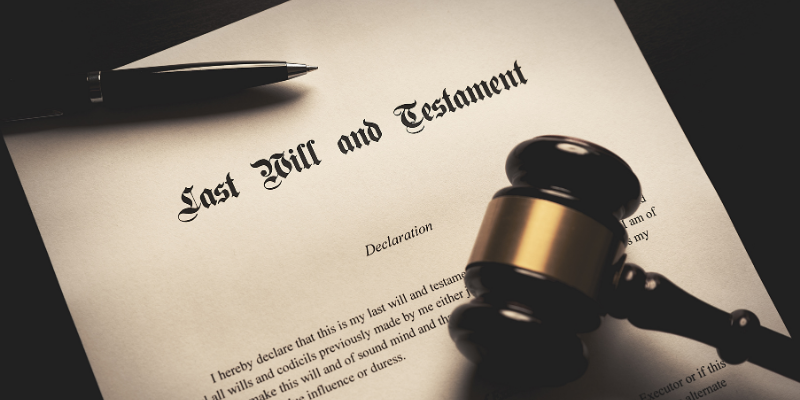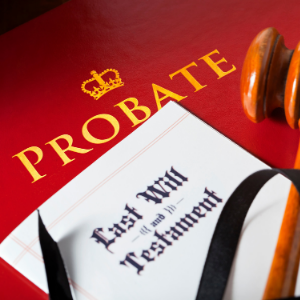
It’s very important to know what an executor does when managing a will, especially in Minnesota, where there are certain legal requirements. This guide is for you if you’re an executor who wants to know if you can change a will. We’ll look at what the law allows and give you useful tips on how to deal with this complicated area. It’s very important to protect what your loved one wants, and knowing your limits will help make sure that happens. Learn as much as you can and do your job with confidence, knowing when and where it might be necessary to make legal changes. Let’s look more closely at how estate administration works in Minnesota.
Key Highlights
- Executors must adhere to the deceased’s wishes and Minnesota’s legal stipulations, managing an estate without changing the will.
- Navigating probate requires understanding legal responsibilities, working with courts, and coordinating with beneficiaries.
- Executors cannot alter the will terms; they ensure compliance with legal frameworks to honor the decedent’s estate planning.
- Consulting estate professionals is critical for legal compliance and smoothly managing potential will alterations.
The Role of an Executor in Minnesota’s Probate Process
In Minnesota’s complex probate process, the executor, a personal representative, plays a pivotal role. They manage the estate, ensuring the deceased’s wishes are honored and their assets distributed according to the will. Executors must navigate legal intricacies, work with the probate court, and interact with beneficiaries. This involves understanding their duties and responsibilities while overcoming potential challenges. Executors serve as the bridge between the decedent’s estate planning efforts and the legal fulfillment of those plans.
Duties and Responsibilities Explained

In Minnesota, an appointed personal representative confronts a considerable legal and practical obligation, overseeing the deceased’s estate throughout the roster of probate procedures. The initial focus centers on the inventory, protection, and, where applicable, the administration of all estate property, which may include one or several trusts. This examination and retention phase guarantees that all property is cataloged and shielded until distribution.
Concurrently, the representative must formally inform all named beneficiaries, enforce claims that the estate is entitled to recover, and register any outstanding estate debts, thus upholding the estate’s fiscal transparency and soundness. Any unresolved legal disputes characterized by pending litigation, claims, or other limitations on estate property must receive prompt attention to discourage probate prolongation, minimize expense, and preserve property value.
Equally circuitous, yet essential, the representative must honor, without lifting the pen of alteration, the post-mortem instructions established by the decedent. Every parcel and prescribed disposition outlined in the writings becomes the law of the probate. Independent changes, favoritism, omissions, and any effort expounded may prompt judicial disciplinary or punitive reaction. Careful counseling by regarded estate counsel, measured in each step, becomes advisable, even built in, thereby protecting the estate’s executor, the decedent’s memory, and the broad spectrum of beneficiaries.
The fulfillment of the fictive, but legally perceived, lifetime engagement on the part of the decedent derives, in part, from the fidelity of the representative, whose obedience to these non-evident but compulsory duties attests to the irrevocable tie between law, memory, and the continuing communal subtext of personal and spiritual behalf.
Common Challenges Faced by Executors
Throughout the probate process, executors routinely confront a series of nuanced difficulties that can impede the efficient administration of an estate. A primary concern often manifests in conflicting views among beneficiaries. Disputes may surface over asset valuations, the propriety of certain distributions, or the anticipated timeline for distributing the estate, all of which can disrupt a harmonious resolution. A judicious executor, therefore, requires the capacity to guide tense negotiations, tacitly exercising mediation techniques to keep disagreements from escalating publicly or legally.
Complications can multiply when unexpected debts or ancillary claims arise, delaying inventory approval or disrupting cash distribution schedules. These contingencies habitually necessitate review by counsel and unanticipated recalibrations of the estate’s cash-flow projections, multiplying the executor’s workload and the sensitive patience required of beneficiaries and the representative.
Heightened emotional strain further magnifies these complexities. Executors, often among the deceased’s closest relatives or friends, confront personal grief alongside their obligations. Here, tactical self-care, periodic consultation with counseling professionals, and judicious pacing of administrative tasks collectively minimize fatigue and cognitive impairment. Careful attention to transactional details and restrictive compliance with statutory obligations is required, lest the fiduciary incur penalties or jeopardize distributions.
Accordingly, when legal terrains are opaque, executors improve their administrations through attorneys, accountants, or estate-planning lawyers. The advisory partnership secures compliance while permitting the executor to honor the intended legacy per the decedent’s testamentary will. These manifold challenges effectively reaffirm the probate representative’s obligation to uphold the orderly progression of administration and to preserve, through dignified process adherence, the testamentary wish that appointed the executor in the first instance.
Having trusted professionals by your side makes all the difference in such cases. While attorneys handle the legal aspects, families sometimes also need financial clarity—especially if property needs to be sold quickly to settle debts or simplify estate administration. For example, if you need to sell your Minnesota house fast or are exploring options for cash house buyers in Saint Paul, working with a reliable homebuyer like Henry Home Buyer can provide peace of mind. They help families in probate situations find quick, hassle-free property solutions across Minnesota, including nearby cities like Bloomington, Eagan, and Brooklyn Park.
Can an Executor Make Changes to a Will?
In Minnesota, understanding whether an executor can change a will is essential. Executors overseeing the implementation of wills often face questions regarding their authority and limitations. While they handle assets and navigate probate courts, executors can’t alter the will’s terms. Instead, they must work within legal frameworks to execute the estate planning as intended by the deceased. This section will explore the boundaries of executor powers and their legal obligations, shedding light on their crucial role in estate administration.
Understanding the Limits of Executor Powers
An executor’s authority is narrowly circumscribed by statutory and common law principles, especially regarding testamentary documents. In Minnesota, the personal representative—more commonly referred to as the executor—may not deviate from the explicit directives contained within the decedent’s will. Minnesota Statutes and the uniform probate procedures impose restraint, precluding the executor from revising, updating, or ignoring the original testamentary instrument to accommodate personal or beneficiary preferences. The enduring effect of this limitation is to assure that the decedent’s final instructions are executed without diminution or alteration, thereby safeguarding the will’s intrinsic legal and testamentary intent against possible self-dealing or imprecision by representatives.
Throughout the probate proceeding, the executor oversees the decedent’s last wishes within a statutory framework. As the arm of the judiciary with exclusive jurisdiction over the estate’s administration, the probate court supervises every relevant action, from the precise inventory of probate assets to the eventual distribution ordered by the will. Deviations—however seemingly trivial—occur outside the representative’s lawful prerogative and require judicial sanction; unauthorized adjustments risk triggering adversarial proceedings, including corrective litigation or injunctive relief from dissatisfied heirs or trustees. The executor’s diligence is not merely prudential; operational fidelity to court-mandated and will-derived rules is a fiduciary and statutory obligation, failure of which may invite personal liability for unauthorized distributions or discrepancies.
To achieve a procedurally and substantively sound administration, executors should avail themselves of estate-planning professionals—attorneys, accountants, and probate specialists—who provide expert interpretations of legacy law and procedural precedent. These advisors do not substitute for or expand the executor’s authority, but instead confirm and enhance it by aligning discretionary decisions with eigen law and providing documentation and testimony that may preempt litigation. By coordinating and facilitating observance between the beneficiaries and the professional team, the executor ensures that every proposed operative step is vetted for statutory, testamentary, and fiduciary congruence, thereby upholding the estate’s integrity.
Adhering to these prescribed limits protects the fiduciary from personal liability and faithfully implements the decedent’s intent, safeguarding the testator’s legacy. Executors who pursue continuing education through targeted seminars or individual consultations with qualified legal counsel can acquire essential competencies to navigate the intricate landscape of estate administration, thus affirming their pivotal contribution to the probate process.
Legal Obligations of Executors in Estate Planning

Engaging as an executor constitutes an arduous undertaking saturated with legal responsibilities that rest firmly at the intersection of estate planning and administration. Mandated to uphold a strict fiduciary standard, the executor must invariably subordinate personal concerns to those of the estate, therefore exercising judgment that places only the collective benefit of the estate above competing interests. The will itself, as the paramount legal document, specifies the roadmap an executor must follow, thereby imposing an explicit imperative to ascertain, collect, and preserve estate assets, to exhaust estate liabilities through the satisfaction of debts and taxes, and to allocate the residue consistently with the testator’s ordination.
Robust and methodical communication, supplemented by meticulous record-keeping, serves as the linchpin as the executor navigates the confines of Minnesota probate administration. The judicial division reserves the chief supervisory responsibility over executors, implying that deviation from statutory timetables and failure to comply with court-implemented requirements will evoke corrective scrutiny. Comprehensive, contemporaneous, and verifiable documentation of every financial and operational transaction confronts the twin threats of judicial questioning and self-interested contestation. Finally, the executor’s ethical conception further constrains discretion, barring the appropriation of estate assets for personal benefit and thereby insisting upon an unwaveringly dispassionate stewardship that integrates impartial oversight with principled restraint.
A fundamental requirement of the administration process is continual consultation with legal counsel to guarantee that all activities conform to applicable legislative provisions. Executrices and executors should anticipate potential legal disputes, including will contests and disputes over creditor claims, and retain counsel accordingly. Engaging qualified legal advisors substantially extends the executor’s facility to execute the estate, shielding the executor from potential personal liability. The relationship further distributes the burden of grave and esoteric questions, allowing the estate to retain expert direction while achieving mandated congruence with estate statutes. By strict observance of these duties, executors uphold public and private honour, thereby facilitating an unimpeded, dignified resolution of the deceased’s business affairs.
In understanding the legal obligations of executors in estate planning, it’s vital to recognize the additional responsibilities that accompany this role:
- Maintain a detailed inventory of all assets within the estate.
- Communicate regularly with beneficiaries to provide updates on the estate’s progress.
- Settle any outstanding debts and taxes owed by the estate.
- Distribute assets according to the decedent’s will while adhering to legal guidelines.
- File necessary court documents to facilitate the probate process efficiently.
- Protect the estate’s assets until they are distributed to the rightful beneficiaries.
- Address and resolve any disputes among beneficiaries or other interested parties.
- Ensure compliance with state and federal laws throughout the estate administration process.
These duties underscore the importance of an executor’s role in managing and settling an estate professionally and transparently.
Legal Requirements for Changing a Will in Minnesota
Navigating the intricacies of changing a will in Minnesota demands understanding specific legal requirements. Executors need to know that although they cannot directly alter a will, there are structured legal processes for making adjustments, primarily through creating a codicil or drafting a new will.
Consulting experienced estate professionals can be invaluable in ensuring compliance with Minnesota laws. The insights and guidance provided by these experts help executors adhere to necessary steps and legal obligations, safeguarding against potential disputes and legal challenges.
Necessary Steps to Make Legal Changes
In Minnesota, you must follow strict legal steps to change a will. This is to protect the person’s wishes and make sure that any changes will hold up in court during probate. Executors and estate planners must follow the rules to make changes without going beyond what the law allows. In general, a testator can only make changes by signing a codicil that adds, removes, or changes certain clauses, or by writing and signing a whole new will. In either case, the new instrument must follow the strict rules that Minnesota law now requires: the testator must sign the will in front of at least two competent witnesses, who must also sign the will in the same way. Such cumulative compliance fortifies the revised instrument against later challenges based upon formal deficiencies.
Before making the change, planners should get the old original will, any previous codicils, the testator’s photo or fingerprint ID, and any other relevant statutory enrollment requirements, such as the dwelling provision or marital-property instructions. If you are acting under a power of appointment or as a tentative estate trustee, you will also need probate and a nec estate appointment document, if there is one. Before any drafting can begin, it is important to check against the statutory checklist and the reserved memorandum to see what the law currently requires. It is necessary to have a lawyer who specializes in Minnesota estate law explain things in a way that is accurate, relevant, and based on the law, as well as explain the possible tax and third-party liabilities that any change could bring about. A well-structured legal review by a qualified lawyer will lower the chances of future lawsuits and make sure that everyone follows the rules during the probate and appellate hearings.
Additionally, executors can take practical steps, like setting up direct conversations with beneficiaries to go over proposed changes and write down the reasons for each change. This kind of documentation makes things more clear, which lowers the chances of future disagreements between stakeholders and makes the guiding principles of each amended provision clearer. Following this structured process, executors can be more sure that they are doing their fiduciary duty, meeting legal requirements, and staying true to the deceased’s clear goals.
Consulting with Experienced Estate Professionals

Engaging Minnesota-based estate planning attorneys is indispensable for anyone contemplating alterations to a testamentary document. Practiced legal counsel ensures that revised instruments satisfy all statutory formalities, mitigating future litigation risks. Their expertise sheds light on intricate matters, including the procedural contours of probate and the meticulous adherence required by the Minnesota Probate Code. Furthermore, such counsel is essential for executors who must familiarize themselves with the precise boundaries of their authority and the duties imposed by statutory and common law.
A review by legal counsel certifies that any amendments faithfully reflect the decedent’s intent while conforming to Minnesota statutes. Qualified estate practitioners provide bespoke guidance that accounts for prevailing legal doctrines and the unique characteristics of the estate, thereby empowering fiduciaries and beneficiaries to proceed confidently. A knowledgeable attorney is indispensable, whether the task is the precise formulation of a codicil, creating a revocable or irrevocable trust, or evaluating estate taxation consequences. Such deliberations often expose latent variables—an obscure asset, a change in family circumstances, or a shift in tax policy—that could materially affect the structuring of the estate plan and that merit careful examination before implementation.
In addition, enlisting subject-matter specialists guarantees that each required procedural element is recorded comprehensively, thereby minimizing the risk of subsequent beneficiary grievances. Counsel embedded within the estate planning process may facilitate dialogue and articulate the reasoning for testamentary choices, thereby clarifying estate dispositions. When fiduciaries depend upon vetted professional intervention, they mitigate the exposure to statutory ambiguities, confirming that their subsequent measures are consonant with statutory and fiduciary duties. This anticipatory, engaged methodology not only fortifies the executor against exposure to personal liability, but also reliably preserves and discloses the valid testamentary will of the decedent, thus advancing execution of the estate with fidelity and, by the same register, with demonstrable accountability.
In summary, executors in Minnesota have a significant legal responsibility but no authority to alter a will. Understanding the nuanced legal framework is crucial for fulfilling duties effectively. If issues arise, particularly questions about the testator’s intentions or any ambiguities within the will, consulting with a local attorney is advisable. As you embark on this fiduciary journey, remember that clear communication with beneficiaries and adherence to the legal obligations are key to ensuring a smooth probate process.
At the same time, when families need quick property solutions to simplify probate, Henry Home Buyer is here to help. They make it simple to sell your Minnesota house fast, offering fair cash deals in Minneapolis, St. Paul, Bloomington, Eagan, and beyond. With their support, you can focus on honoring your loved one’s wishes while leaving the stress of property sales behind. Contact us at (612) 430-8822 today to know more!
Helpful Minnesota Blog Articles
- Successfully Selling A House With Title Issues In Minnesota
- Essential Guide To Selling Your Rental Property In Minnesota
- Discover Fascinating Facts About Minnesota’s Unique Homes And Real Estate
- Is Minnesota A Safe Place To Buy A Home? Exploring Housing Safety And Real Estate Insights
- Expert Minnesota Property Management For Residential Real Estate Success
- How To Remove A Name From A House Deed In Minnesota
- Condemned House Requirements in Minnesota
- Can the Executor Change the Will in Minnesota?
- Way to Avoid Capital Gains Tax in Minnesota
- How Long After an Appraisal Can You Close in Minnesota

